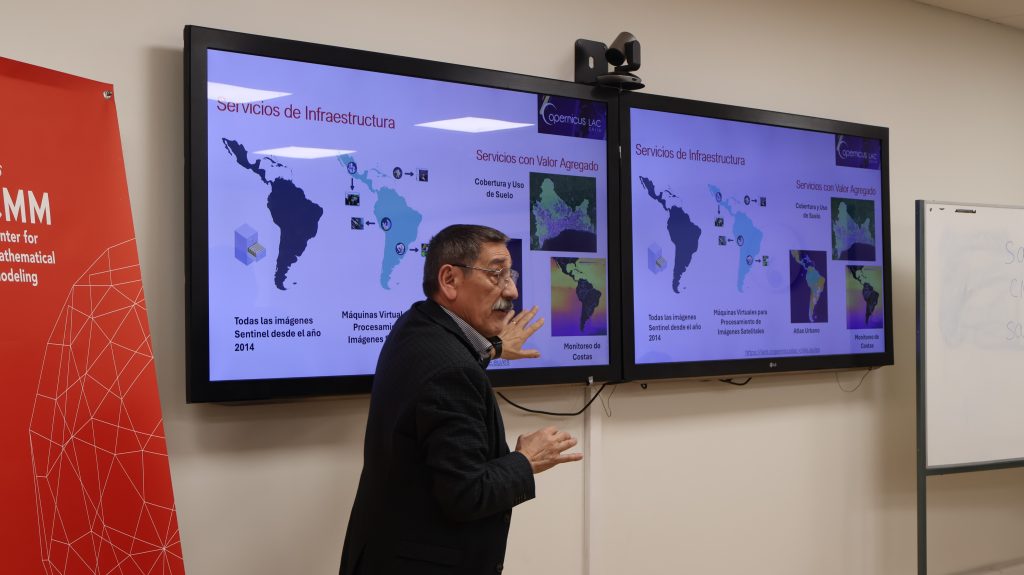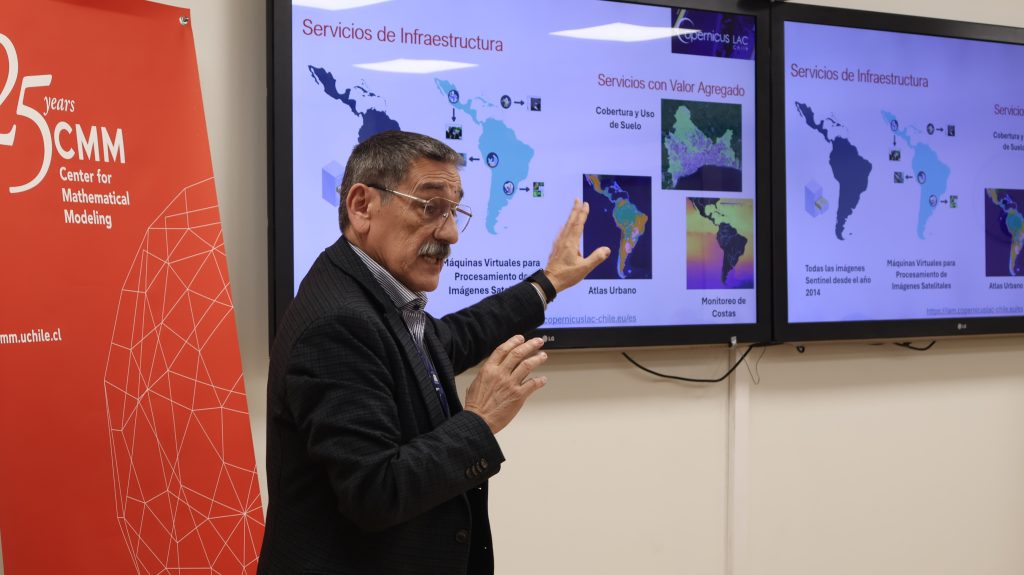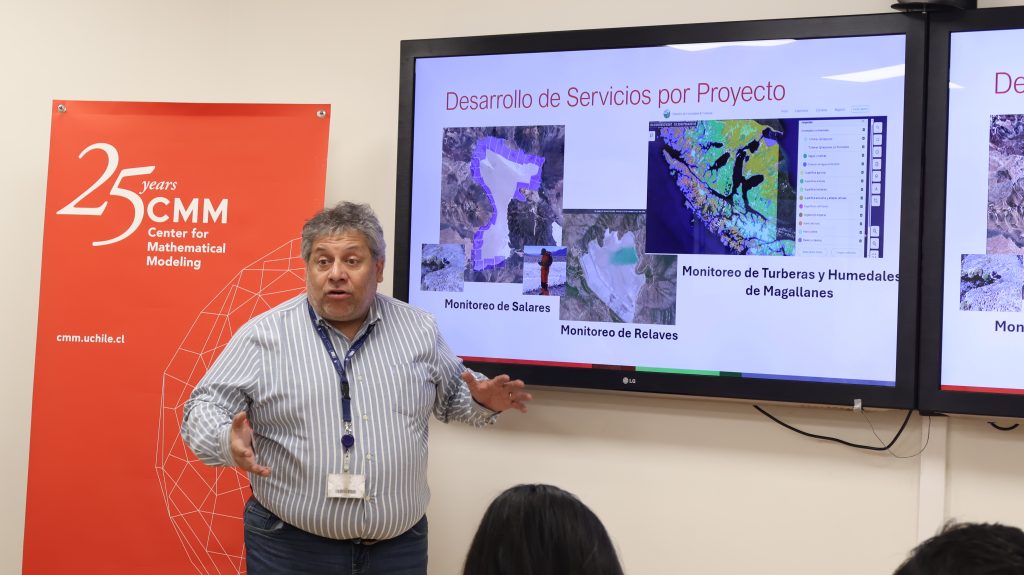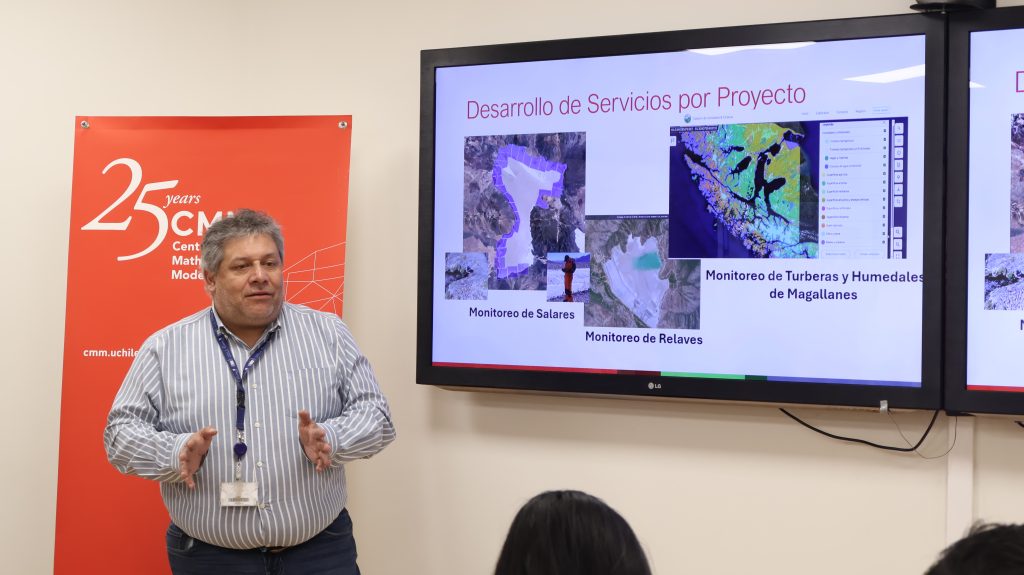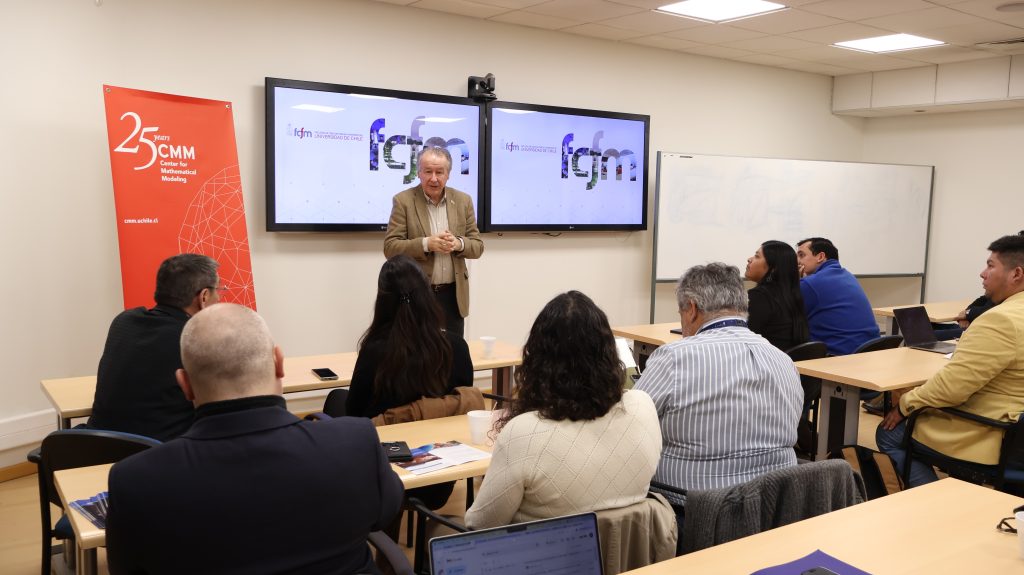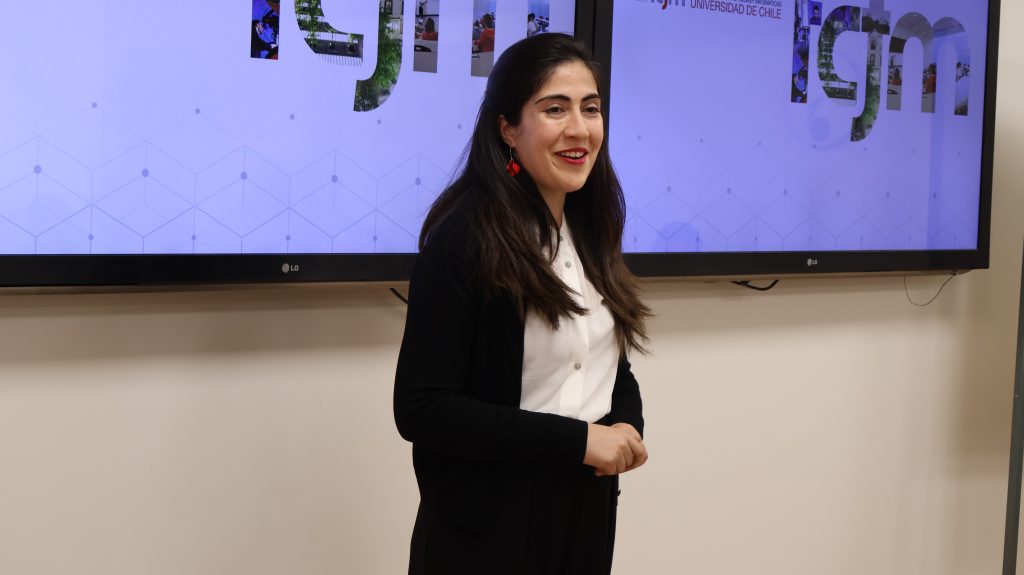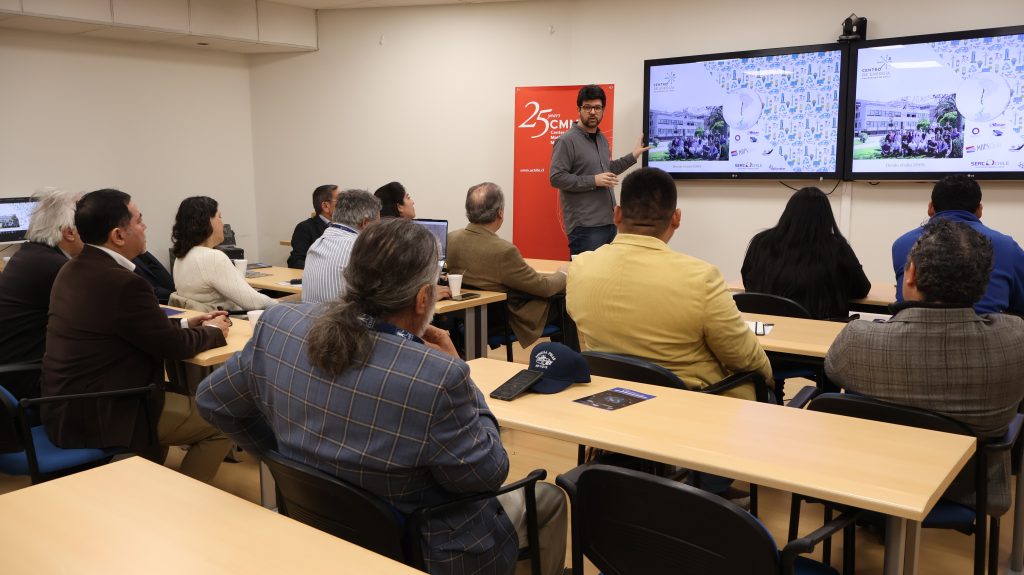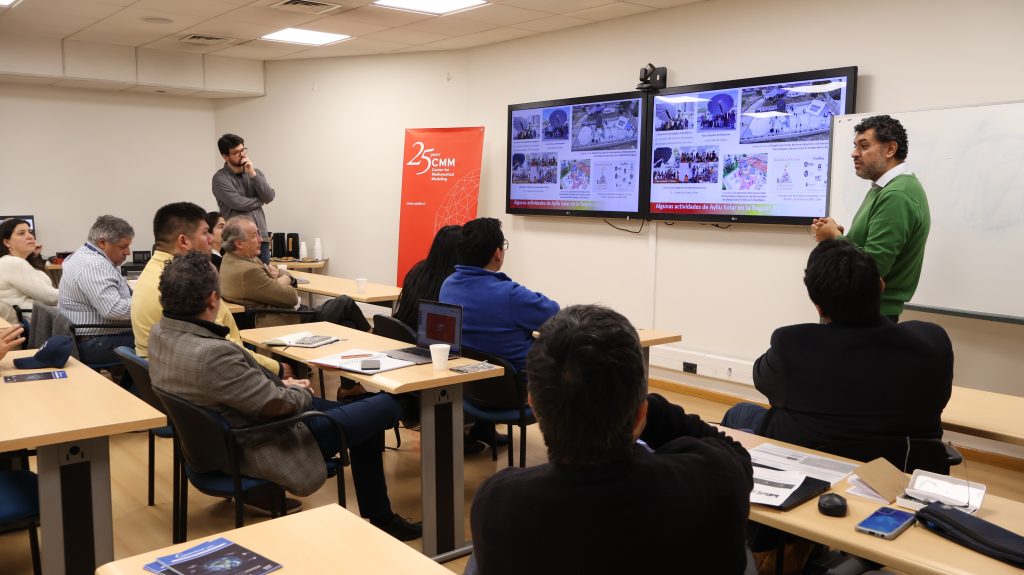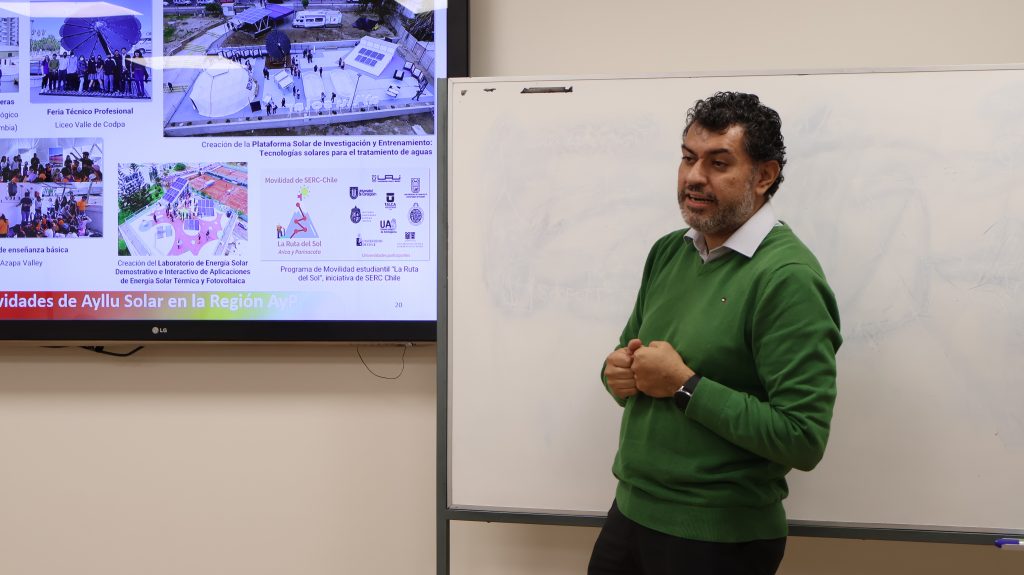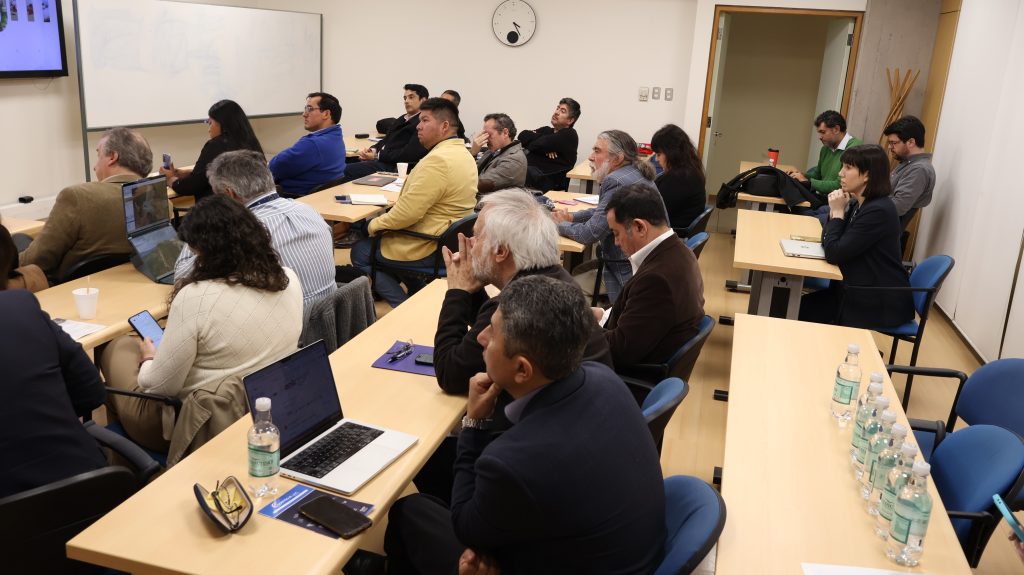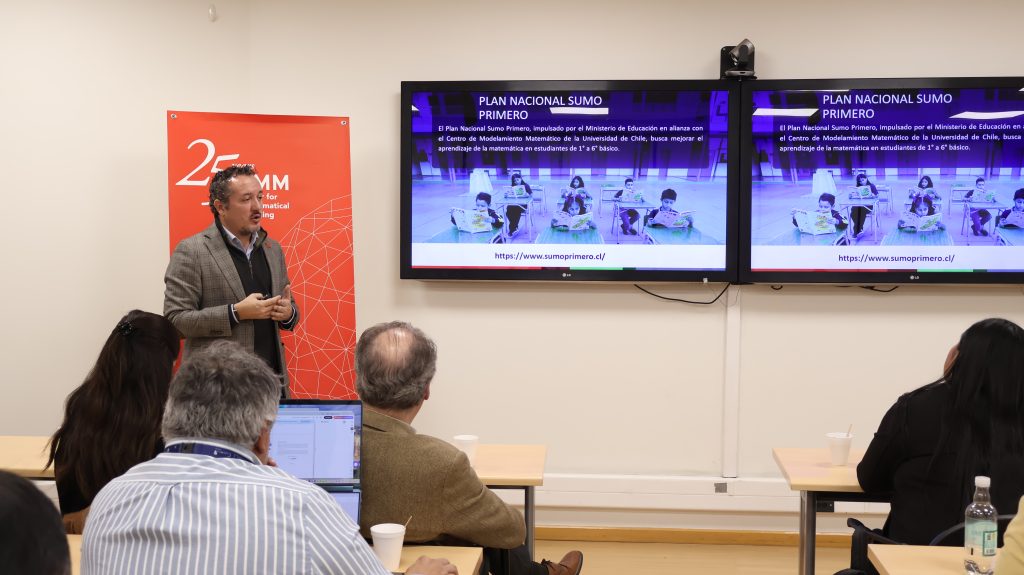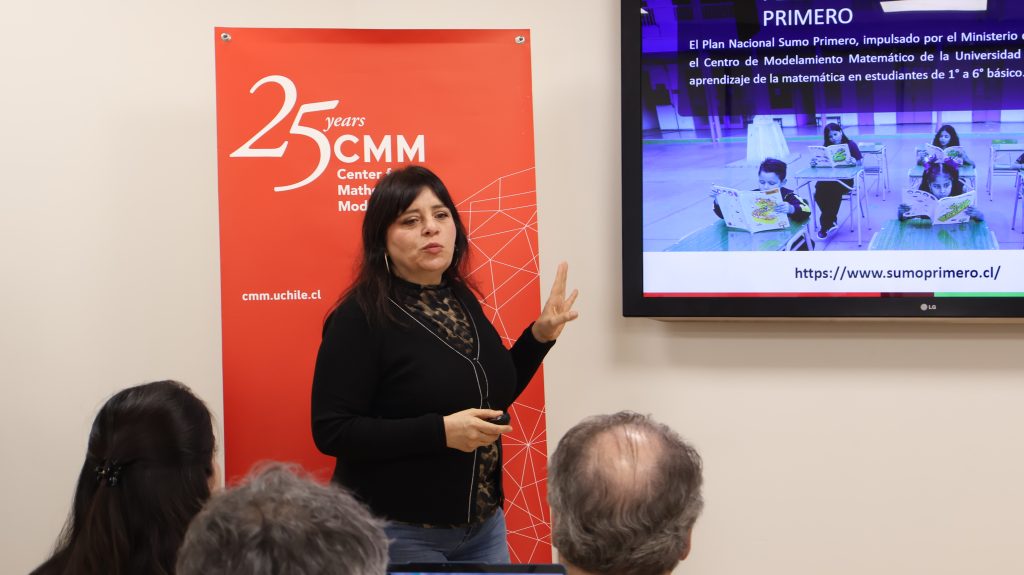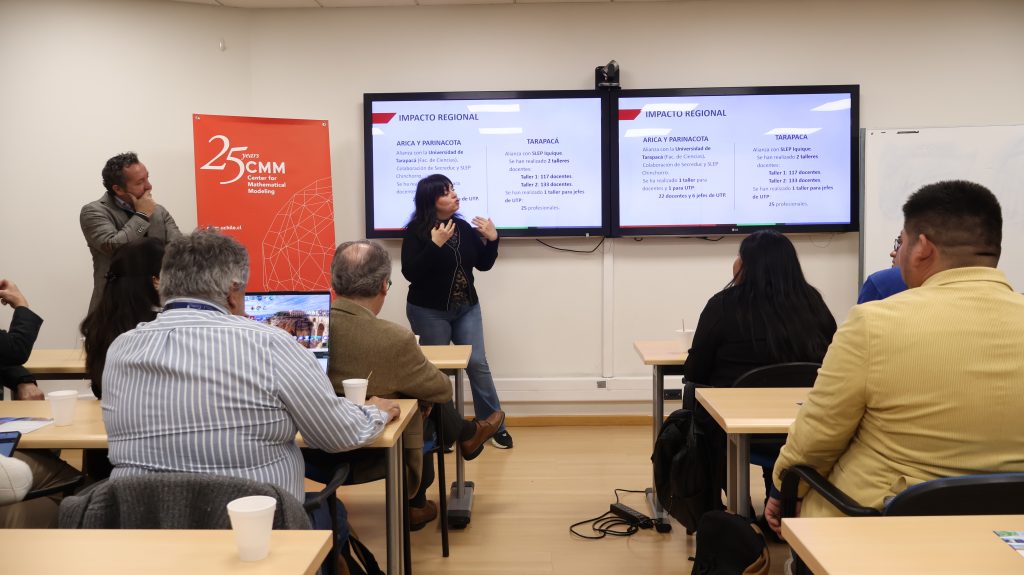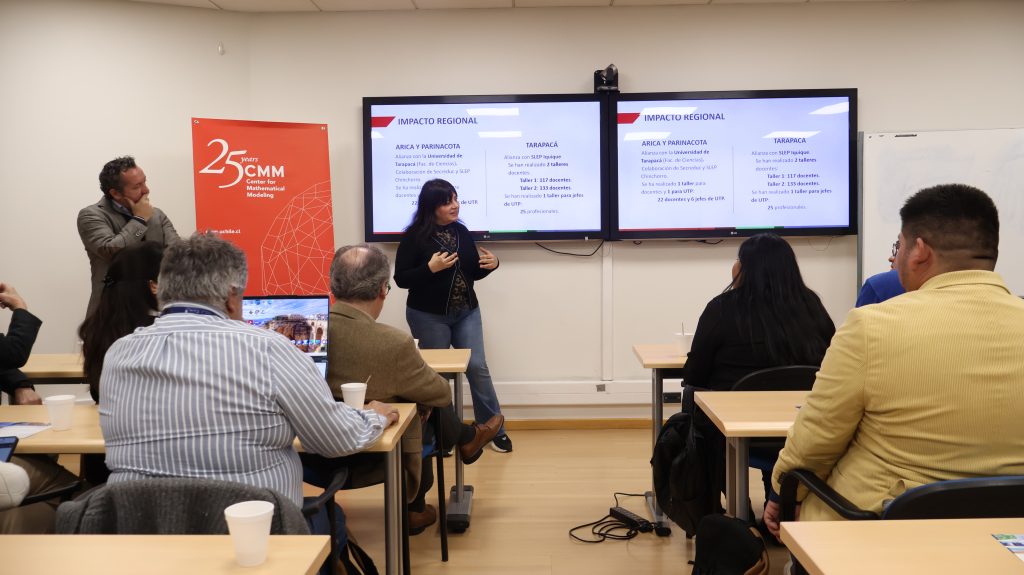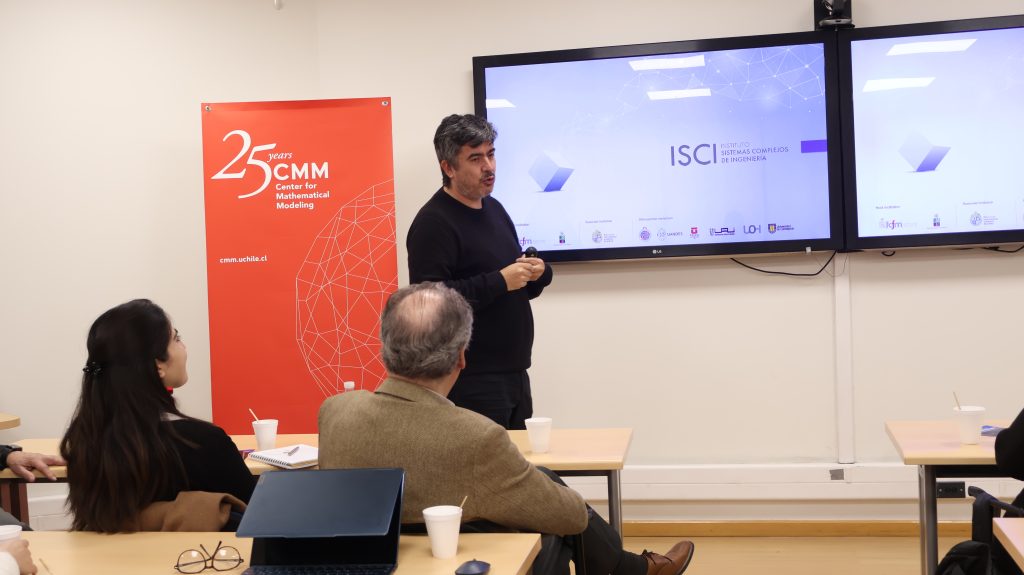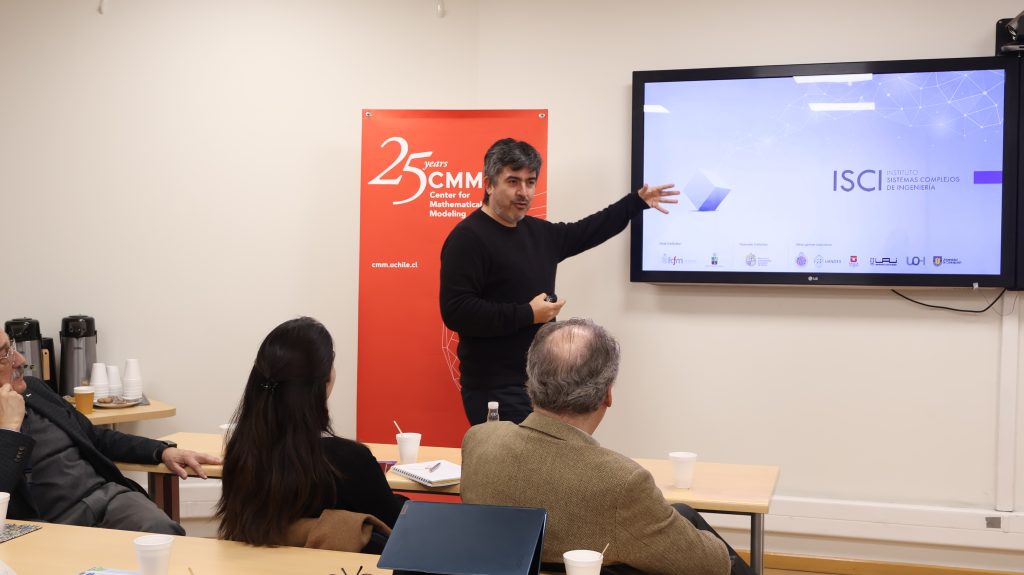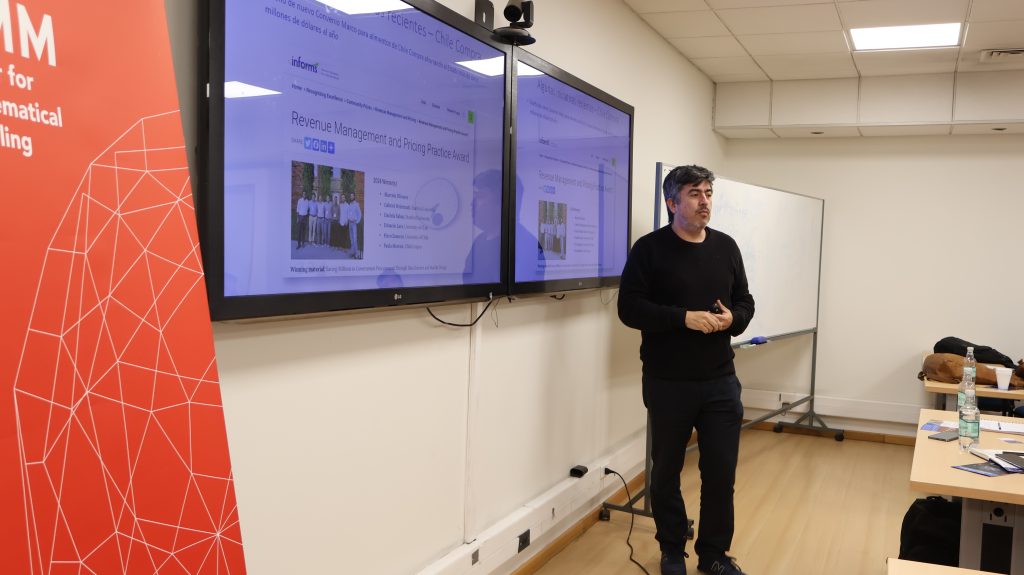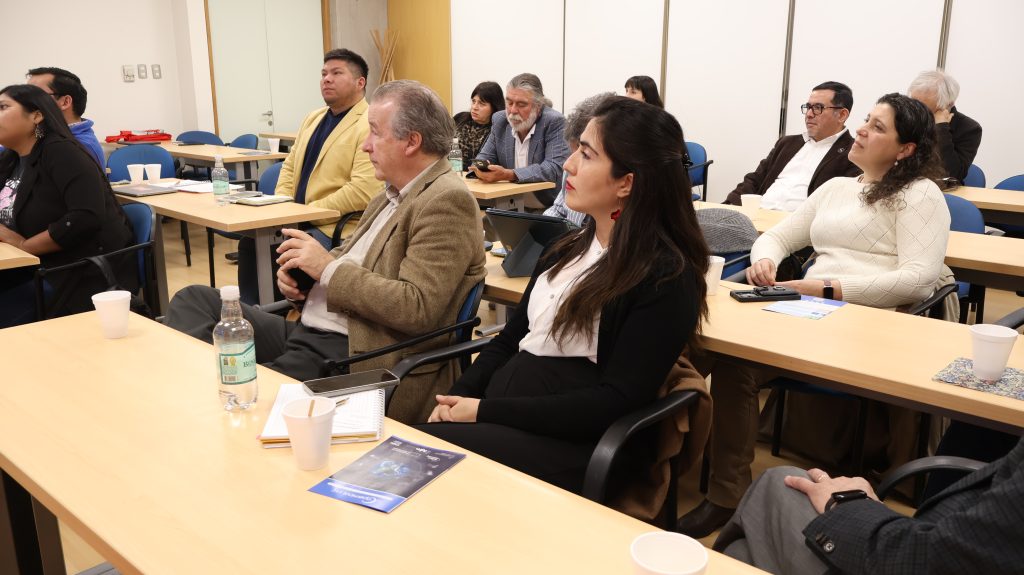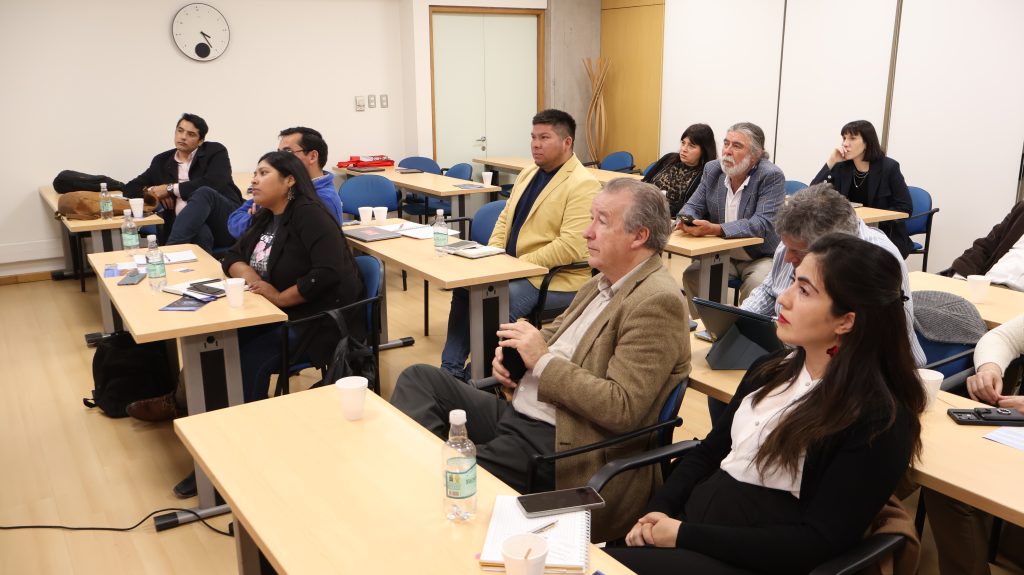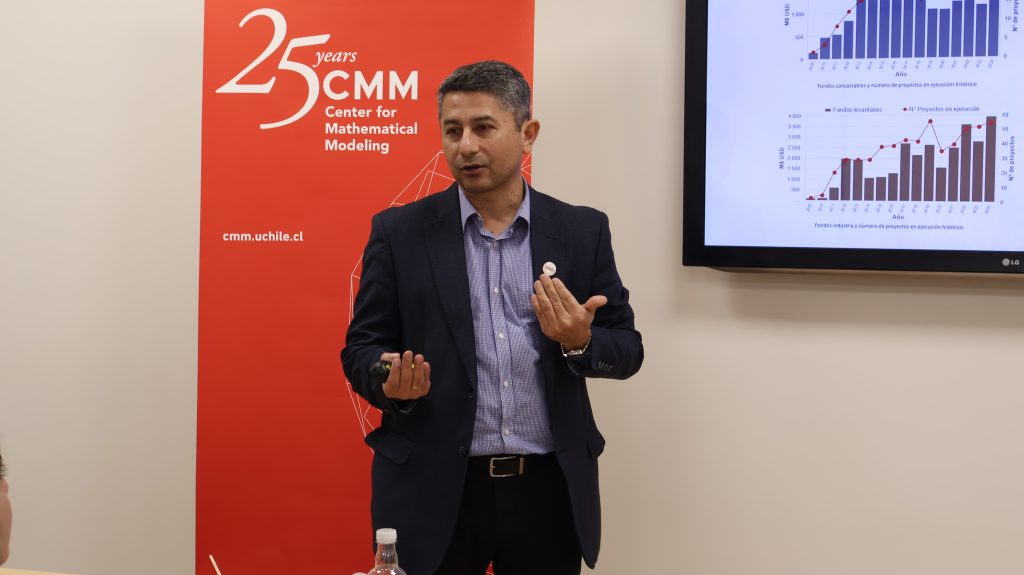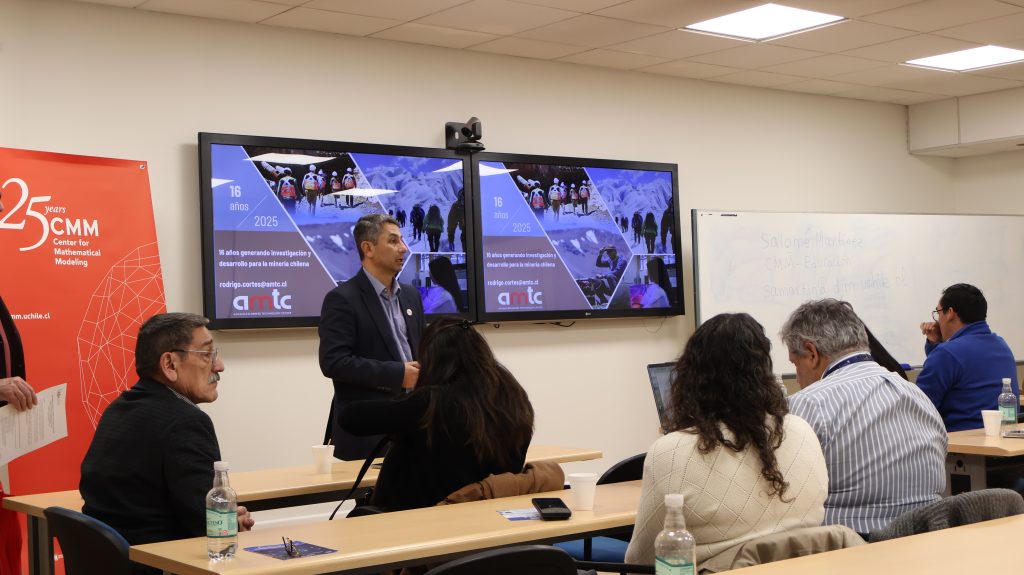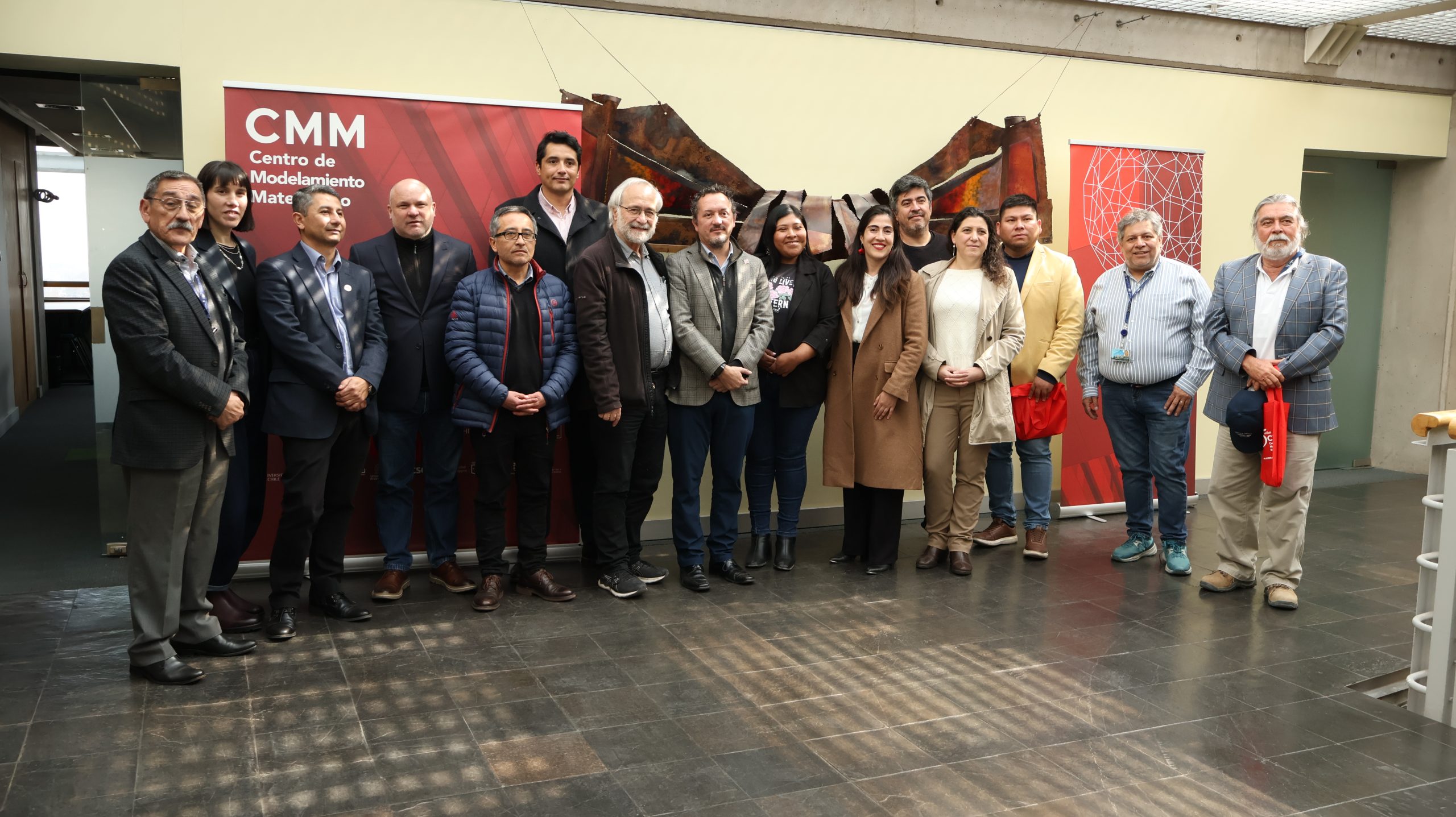The delegation of authorities from Tarapacá and representatives from Arturo Prat University learned about the FCFM’s research, innovation, and training initiatives at a meeting aimed at strengthening collaboration with the northern regions of the country.
The Faculty of Physical and Mathematical Sciences (FCFM) of the University of Chile welcomed a delegation led by Alexia Vásquez Pino, Regional Ministerial Secretary for Science, Technology, Knowledge and Innovation for Arica and Parinacota and Tarapacá. The meeting connected the faculty’s scientific and training capabilities with the strategic challenges of the north of the country, through presentations by centres such as the CMM, the AMTC, and the ISCI.
The visit took place on Wednesday, 13 August, and was attended by five regional councillors from Tarapacá and representatives from Arturo Prat University, who accompanied the regional minister. The delegation was received by FCFM authorities, led by Dean Francisco Martínez Concha, in a day of dialogue aimed at strengthening collaboration between the university and regional development.
Regional Minister Alexia Vásquez stressed: “It is essential for us to coordinate the Regional Government with the institutions that lead research at the national level, so that councillors can find in science, technology and innovation a framework that enables regional development.”
The regional authority also explained that “the participation of Arturo Prat University is key to building alliances that enable both universities to contribute to regional knowledge, thereby strengthening joint efforts.”
Connecting capabilities and challenges
The discussion centred on the faculty’s capacity to address the challenges and priorities defined in the Regional Development and Innovation Strategy for the Tarapacá region. In this context, Dean Francisco Martínez stated that the objective is to “establish a link between the region’s needs and the scientific and educational capabilities of the FCFM, opening up interesting opportunities for collaboration with the territory.”
“This instance generates ways of directly connecting with the specific issues of the region, both in its productive sectors, in terms of environmental and social sustainability, and also in school education in mathematics,” emphasised Martínez. “Direct exchange is highly enriching for identifying areas of collaboration.”
“I would like to thank the University of Chile for its willingness to present its research advances and facilities and to engage in dialogue with the Tarapacá councillors,” said Regional Minister Vásquez.
The meeting featured presentations by Willy Krach, Director of the Energy Centre; Héctor Ramírez, Director of the Mathematical Modelling Centre (CMM); Salomé Martínez on CMMEdu; Jaime Ortega and Florencio Utreras on CopernicusLAC Chile; Marcel Goic, Director of the Centre for Retail Studies and researcher at the Institute for Complex Engineering Systems (ISCI); and Rodrigo Cortés, Technology Transfer Manager at the Advanced Mining Technology Centre (AMTC).
“It is very important to have these kinds of visits because they bring us closer to the territory and to the reality of the communities through the participation of councillors, who are, in this case, the representatives of Tarapacá, where mining plays an important role,” said Rodrigo Cortés. “We believe in and seek to generate impact in the territories and the region. That is why it is vital to reach out, engage in dialogue, and raise awareness of the work we are carrying out and how we can strengthen our relationship with the regions.”
“It is very positive that they visit the faculty and learn about our capabilities and our vision for productive development, particularly in our case, mining,” added the AMTC director.
Finally, CMM Director Héctor Ramírez highlighted: “We are very pleased with this visit to the faculty and that we had the opportunity to welcome them to the CMM. Our presentation on projects with potential for these two regions sparked great interest in the delegation, which expressed its explicit desire to implement several of the CMM projects in the two regions represented.”
The meeting was held at the CMM facilities, within the Faculty of Physical and Mathematical Sciences.
Text: Communications, Center for Mathematical Modeling.
